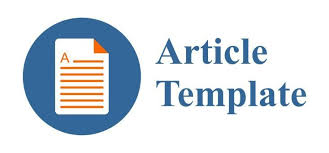Relativity, linguistic variation and language universals
Norova Barchinoy Qiyomiddin qizi
4th year students at Djizzakh branch of The National University of Uzbekistan named after Mirzo Ulugbek
Farmonov Muhammad Qoʻzi oʻgʻli
4th year students at Djizzakh branch of The National University of Uzbekistan named after Mirzo Ulugbek
Abdurahmonova Zilola Yoqubjon qizi
Supervisor Assistant teacher in the department Foreign Languages at Djizzakh branch of The National University of Uzbekistan named after Mirzo Ulugbek
##semicolon## coevolution; constituency; culture; dependency; evolutionary theory; linguistic diversity; linguistic typology; recursion; universal grammar; direct object; human capacity for language; universal properties; verb;
सार
Universal languages are often thought of as properties containing all languages. Due to the extreme structural diversity of languages, however, very few, if any, such universals exist. Rather, there are many typological universals that allow for variation but limit it or at least limit its distribution. This is true even among linguistic groups. Formal (grammatical or lexical categories) are not universal, but are restricted by the structure of conceptual space, as shown by a multidimensional scaling analysis of adpositional semantic data from levinson et al. (2003). Despite this, broad conceptual categories are not universal. Rather, what is universal is the holistic description of highly specific situation types and the conceptual relationships that exist between them. This conclusion is confirmed by an analysis of results on the cross-linguistic variation in verbalization from croft's.
##submission.citations##
1. Frost, Robert (1966) ‘The figure a poem makes’ in Modern Poets on Modern Poetry, ed. by James Scully, London: Fontana/Collins.
Abduraxmanova, Z., & Mamurova, M. (2021). THEORETICAL APPROACH TO SPEECH DISFLUENCIES IN SIMULTANEOUS INTERPRETATION. In МОЛОДОЙ ИССЛЕДОВАТЕЛЬ: ВЫЗОВЫ И ПЕРСПЕКТИВЫ (pp. 43-45).
Абдурахманова, З. (2022). Analysis of pauses and interuptions as elements of linguistic production in simultaneous interpretation. Современные инновационные исследования актуальные проблемы и развитие тенденции: решения и перспективы, 1(1), 533-535.
Zilola A., Barchinoy N., Muhammad F. THE ROLE OF MEDIA IN INFLUENCING CULTURE AND SOCIETY //Journal of Academic Research and Trends in Educational Sciences. – 2023. – Т. 2. – №. 2. – С. 190-197.
Dildora Q., Barchinoy N., Muhammad F. AYTILGAN SINF: FAOLI, SAMARALI VA MUSTAHKAMLANGAN O'QITISh-XAXSUS TO'LIQ O'G'ILGANLAR UCHUN //Journal of Academic Research and Trends in Educational Sciences. – 2023. – T. 2. – №. 2. – S. 358-364.
Zilola A. et al. ANALYSES OF ADS //International conference on multidisciplinary science. – 2023. – Т. 1. – №. 5. – С. 66-69.
Zilola A. et al. ANALYSIS OF POEM //" XXI ASRDA INNOVATSION TEXNOLOGIYALAR, FAN VA TAʼLIM TARAQQIYOTIDAGI DOLZARB MUAMMOLAR" nomli respublika ilmiy-amaliy konferensiyasi. – 2023. – Т. 1. – №. 11. – С. 14-18.





